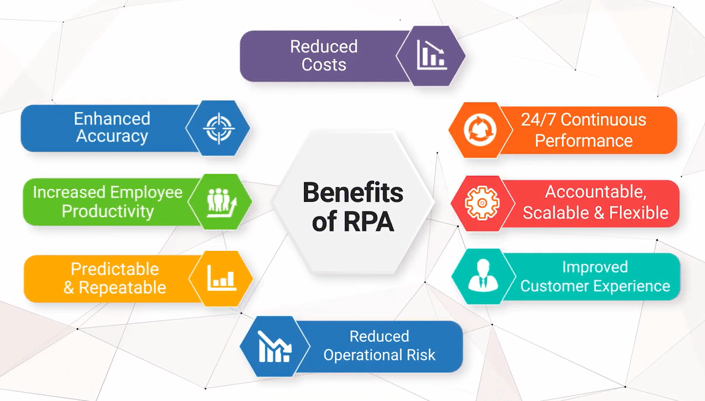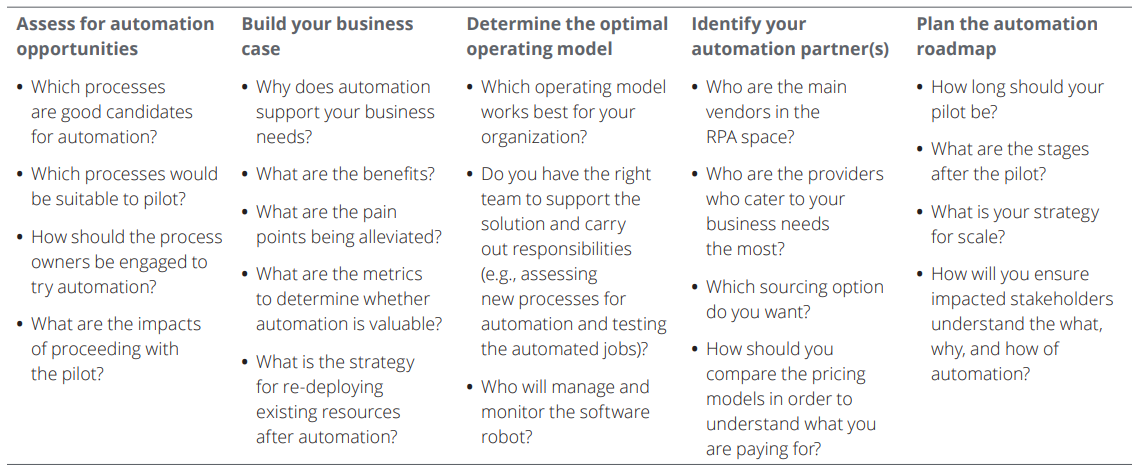For businesses to stay relevant, efficient, meet dynamic customer trends, and promote innovation, they're turning to digital transformation solutions, especially in such a digital era. One of the complex challenges many are facing, though, are transitioning from and dealing with legacy systems.
Conventional businesses often have custom-built processes to run their operations. Not modernizing these decelerates process efficiency and skyrockets maintenance and support costs. Businesses can sometimes be reluctant to modernizing their systems, as upgrading legacy applications can be an expensive and strenuous task, and completely cutting off applications may not always be possible. As a part of this transition, RPA evolved as one of the most adopted automation solutions. Here we will see the significant role of RPA automation in modernizing legacy systems.
Role of RPA in Legacy Modernization

Even though legacy systems can harm your business, they can often be pricey to replace and require experts to conduct migration. In industries such as airline, banking, government and energy, for example, replacing applications with any sort of disruption is simply not possible. In these cases, RPA is cost-effective automation solution that can be implemented without disrupting enterprise applications or workflows.
RPA helps automate labor-intensive, repetitive, rule-based tasks. Additionally, RPA can also enable businesses to modernize legacy systems. RPA bots can streamline regular workflows (involving legacy applications) quickly and extract insights precisely, by referring to various applications effortlessly and providing quick responses. More specifically, this technology can aid in handling back-office operations and customer service management.

RPA is a quicker, more responsive, and cost-effective solution to implement when compared to utilizing APIs or similar integrations for system upgrades. APIs, though well-suited for integration, are expensive and provide less flexibility. Unlike APIs, RPA facilitates resolution implementation swiftly and effortlessly and guarantees exceptional throughput. Deploying APIs also requires additional individuals and resources to manage, whereas RPA technology does not. With RPA, businesses can experience decreased costs while still achieving end-to-end workflow automation, ensuring agility and higher operational efficiency.
A large concern in legacy modernization is security. With disintegrated applications and systems, outdated security frameworks, and absence of regulated policies, legacy systems are leaving vulnerabilities for cyber-attacks to happen. These security impediments, along with not having procedures for cybersecurity readiness, can result in data breaches. On top of that, legacy systems don’t provide the necessary ability to run frequent security upgrades.
RPA-based automation of GRC and entire security processes can streamline security operations and ensure more robust security and data integrity without disrupting legacy systems. RPA powered by AI capabilities can proactively monitor business systems for risks and suggest appropriate solutions by consistently upgrading security standards and regulations.
What to Consider Before Modernization with RPA
Below is a list of evaluative questions for businesses to consider before modernizing legacy systems with RPA technology.
Source: Deloitte
RPA Implementation Process
The standard steps involved in the RPA implementation process are:
- List out the processes to automate
- Perform a Feasibility Assessment
- Perform process mining
- Based on the feasibility study, reoptimize and restructure the processes
- Gather user stories
- Start the development process
- Test RPA processes
- Reconfirm and deploy
Conclusion
Implementing RPA-based automation to modernize legacy systems is a cost-effective and easy to implement solution. RPA is not best suited for all legacy system modernizations use cases, so it's important for a business to precisely identify use cases that are best suited, choose the right RPA vendor, calculate ROI, and accordingly plan their RPA-based legacy modernization process. Doing all these can enable your business to make the best use of RPA automation capabilities and prosper in their digital transformation journey.
















